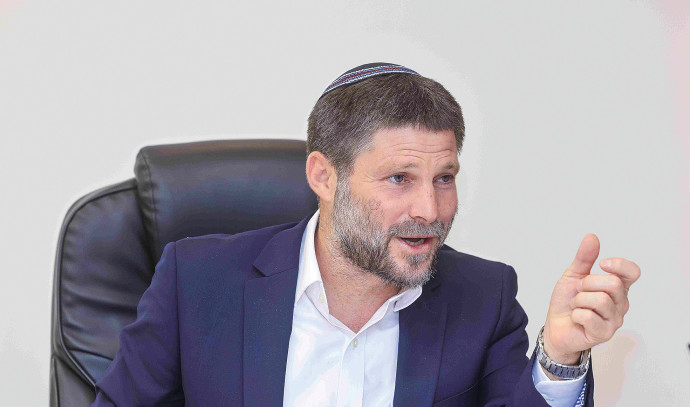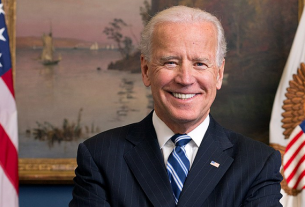Finance Minister Bezalel Smotrich’s proposed 15% budget cut for the Arab sector will bring the local Bedouin councils to the edge of collapse, with serious repercussions for all of Israeli society, economic adviser for the National Committee of Heads of Arab Local Councils Ziad Abu Gnem said at an emergency meeting held for the heads of Negev Bedouin councils on Tuesday in Beersheba.
“The cuts will bring a halt to all the work in closing the socio-economic gaps that have been succeeding in areas such as employment for women, higher education, and improved service by local councils,” he said. “The cuts will also bring an increase in unemployment, poverty, and crime… and it will seriously harm the integration of the Arab sector into Israeli society. It will affect all aspects of the Israeli economy.”
The cuts would affect three different five-year financial plans passed by the previous government: plan 1297 specifically for Bedouin society, the 550 plan for general Arab society, and the 549 plan against crime and violence in Arab society. It would in effect amount to a cut of NIS 5 million ($1.36 million) for the next 3 years, or almost NIS 1.65 million per year, he said.
“We need to stop these cuts because we are not speaking about trimming the fat – there is no fat to trim. These are not extra funds; all local councils will be hurt, they use these funds to provide services in education, maintenance of public spaces, and social welfare services,” he said.
Smotrich has also called for a 5% across-the-board cut from the entire national budget.
Mayors and municipal directors of different Bedouin municipalities, directors of the local Bedouin councils, and members of NGOs attended the meeting initiated by Sikkuy – the Association for the Advancement of Civic Equality, Shatil – the Inter-Agency Task Force on Israeli Arab issues, the Arab-Jewish Center for Equality, Empowerment and Cooperation (AJEEC), and the National Council of Arab Mayors (NCAM).
It does not make sense that the local councils and municipalities that are less able to financially absorb these cuts should be at the receiving end of such a decrease in their budget rather than stronger municipalities such as Herzliya and Hod HaSharon, said AJEEC co-CEO Ilan Amit.
“Why are the Bedouin local authorities, which are the weakest socioeconomic councils in the country, getting a 15% cut in their budgets?” Amit asked. “We were finally seeing the fruits of the five-year plans in terms of [fighting] crime, and higher education, and employment. This will take us back decades.”
Budget cuts indicate a regressive approach to Bedouin communities that didn’t work
AMIT SAID those Bedouin local authorities also provide basic services to 130,000 Bedouin citizens residing in non-recognized villages, which amounts to cutting these services to “the weakest of the weakest.”
He noted that the news published by Calcalist as the emergency meeting was convening – that Minister for Social Equality and Advancement of the Status of Women May Golan fired Director-General Meir Bing – was of great concern, given the fact that according to the report, Golan has now assumed Bing’s authority to promote budgets in Arab society and also ordered the cancellation of a committee meant to convene for this purpose.
“While we are busy fighting against the 15% cut, we got the news that the whole mechanism that allocates the budget to Arab society is now frozen,” he said. “It is pretty clear this won’t be the only cut.
“There is a fear that we will go back to the realities of the 90s where the majority of Bedouin society will be managed by appointed committees… appointed by the government. The Interior minister will say that [the local municipality] is not functioning or balancing its budget and will appoint a committee to manage the municipality – which would be a disaster because it pretty much takes the municipality back decades in running its budget and running services for its citizens.”
INSS research indicates Arab society has a desire to integrate into Israeli society
In a February 7 paper, Institute for National Security Studies (INSS) researcher Ephraim Lavie noted that over the past decade, Arab society has shown its desire to integrate into Israel’s society and economy, and the government should seize the opportunity by continuing to implement the five-year plans. He said this view is supported by government officials including those in the Social Equality Ministry, the defense establishment, civil society organizations, and Jewish-Arab research institutions.
“The five-year plans for the economic and social advancement and development of minorities in Israel have helped to narrow gaps between Jews and Arabs and promote integration between the two communities,” he said, noting the sharp climb in the numbers of Arab students matriculating from high school and continuing into higher education, the significant rise in the employment rate among Arab women, and the improvement in the economic health of the Arab local authorities.
“Against the backdrop of Hamas’s barbaric attack on Israel and the ensuing war, a golden opportunity has been created to engender a positive change in how the state and its Jewish majority view Arab society,” Lavie said.
“Given the cost of the current war, it is understandable that the Finance Ministry would like to slash the budget by 5% across the board of every government ministry, but it is critical to avoid a much deeper cut (up to three times at 15%) of the budgets proposed for the Arab sector’s five-year plan,” he stressed.
IF ISRAEL goes ahead with these cuts, he said, it could undermine investments that have already been made, widen the gaps, and slow down processes of integration, thus harming the Israeli economy, which he said has seen high levels of growth in recent years, partly thanks to the five-year plan for the Arab sector.
“Missing this opportunity to improve relations between the state, its Jewish majority, and the Arab minority could prove to be a strategic mistake at the national level in terms of Israel’s society, economy, and national security,” Lavie warned.
“It would lead to alienation and estrangement of the Arab minority, and it would strengthen the extremists – nationalist and religious alike – and the trend toward separatism within Israeli society. It would also encourage extremist, right-wing Jews to express and act upon their nationalism, which is fueled by hatred, bullying, and racism toward Arabs.”
In a February 12 Knesset Finance Committee meeting where Smotrich presented the additional budget for 2024 saying “a strong economy knows how to support security needs,” MK Ahmad Tibi said that while it is natural that there is an across-the-board budget cut after every war, Smotrich’s decision hurts many sectors and populations, but most of all the Arab population.
“There is a decision here that causes targeted harm, almost lethal harm, to Arab society,” he said. “Employment in general and women’s employment in particular, infrastructure, the healthcare system in Arab society and healthcare in general, housing and education are [all] being severely harmed. The decision [for cuts] on the balancing grants is crushing the municipalities in the Arab sector,” Tibi said.
“The Finance Minister said at first that it was because of crime in Arab society, but then he cut NIS 300 million from the plan for combating crime in the Arab sector,” he said. “Logically this doesn’t make sense; perhaps it is compatible with the minister’s worldview, but not with the economy and not with the recommendation of the OECD, which stated that reduction of disparities in Arab and haredi [ultra-Orthodox] society is vital for Israel’s economy.”




